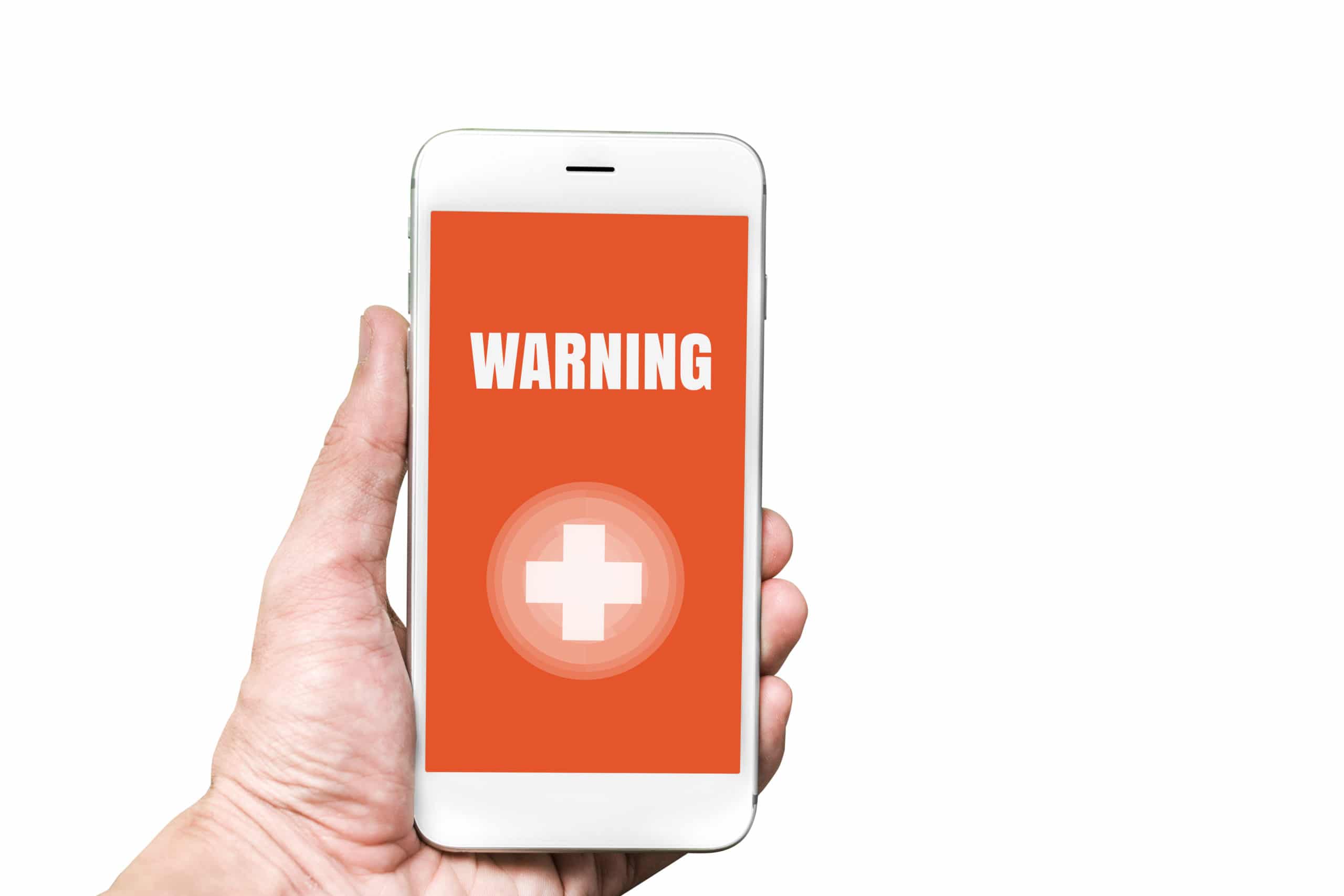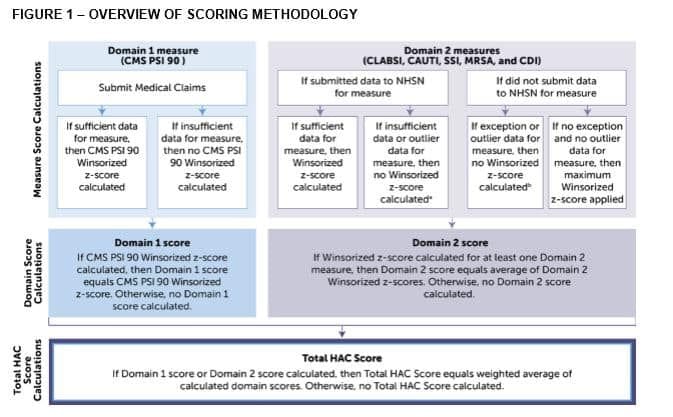
What is the Hospital-Acquired Condition Reduction Program?
Lately, MedMalFirm.com has shared information about hospital performance and deficiencies in hospitals all across the United States. Now, we want to share information about the Hospital-Acquired Condition Reduction Program (HACRP), a program that links Medicare…
Lately, MedMalFirm.com has shared information about hospital performance and deficiencies in hospitals all across the United States. Now, we want to share information about the Hospital-Acquired Condition Reduction Program (HACRP), a program that links Medicare funding to hospital performance. Specifically, we want to provide information about how Texas hospitals are performing, and which hospitals have been shown to harm patients.
The Centers for Medicare and Medicaid Services (CMS) has a pay-for-performance program for hospitals. The program links healthcare quality to Medicare payments, incentivizing hospitals to reduce hospital-acquired conditions (HACs) and improve quality. Hospitals that perform poorly, or have hospital-acquired condition scores in the 75th percentile will be subject to a payment reduction.
Hospital-Acquired Condition Scoring System
In order to score hospitals, CMS gathers data related to different HACs and breaks them down into two categories – Domain 1 and Domain 2. These categories are defined as:
Domain 1
Domain 1 consists of ten CMS Patient Safety Indicators (PSI), known as CMS PSI 90. The ten PSIs include:
- PSI 03 – Pressure Ulcer Rate
- PSI 06 – Iatrogenic Pneumothorax Rate
- PSI 08 – In-Hospital Fall with Hip Fracture Rate
- PSI 09 – Perioperative Hemorrhage or Hematoma Rate
- PSI 10 – Postoperative Acute Kidney Injury Requiring Dialysis Rate
- PSI 11 – Postoperative Respiratory Failure Rate
- PSI 12 – Perioperative Pulmonary Embolism or Deep Vein Thrombosis Rate
- PSI 13 – Postoperative Sepsis Rate
- PSI 14 – Postoperative Wound Dehiscence Rate
- PSI 15 – Unrecognized Abdominopelvic Accidental Puncture/Laceration Rate
Domain 2
Domain 2 consists of HACs monitored by the Centers for Disease Control and Prevention (CDC) and the National Healthcare Safety Network (NHSN). These include:
- Hospital-associated infections (HAIs)
- Central line-associated bloodstream infections (CLABSI)
- Catheter-associated urinary tract infections (CAUTI)
- Surgical site infections (SSI)
- Methicillin-resistant Staphylococcus aureus (MRSA)
- Clostridium difficile infection (CDI)
To obtain a score, CMS applies weight, as applicable, to Domain 1 and Domain 2. Hospitals that score in the 75th percentile are subject to a one percent Medicare payment reduction. The score cutoff for the 75th percentile was 0.3429. Any hospital with a score higher than that, will be subject to a payment reduction. Hospitals with negative scores indicates better performance. For example, a score of 1.8213 is far worse than a score of 0.423.

Hospital-Acquired Condition Scores for Texas Hospitals
One of the benefits of CMS gathering and publishing data and scores for hospitals is the fact that it provides the public with information on how hospitals in their community compare to one another. This is a valuable tool when choosing a hospital for a variety of healthcare needs.
At MedMalFirm.com, our Houston medical malpractice attorneys want Texans to be informed about how hospitals in our state score. We have collected data and scores, and have compiled a list of the 50 Texas hospitals that scored the worst on hospital-acquired conditions and were subject to a payment reduction. These hospitals include, with scores:
- Cook Children’s Northeast Hospital – 2.1365
- Cleveland Emergency Hospital – 2.1342
- Humble Surgical Hospital – 2.1342
- Providence Hospital of North Houston – 2.1342
- Emil Freireich Cancer Center – 1.8213
- AD Hospital East – 1.8088
- Aspire Behavioral Health of Conroe – 1.7979
- Palo Pinto General Hospital – 1.7381
- United Memorial Medical Center –
- North Texas Medical Center – 1.6772
- Covenant Hospital Levelland – 1.6749
- Care Regional Medical Center – 1.6453
- Texas Health Presbyterian Hospital Allen – 1.623
- Scott & White Hospital Brenham – 1.6106
- The Heart Hospital Baylor Plano – 1.6017
- Baylor Scott & White Medical Center Llano – 1.5421
- Hereford Regional Medical Center – 1.5694
- Luke’s Sugar Land Hospital – 1.2621
- Pearland Medical Center – 1.1393
- The Hospitals of Providence Transmountain Campus 1.1256
- Starr County Memorial Hospital – 1.0676
- Southwest General Hospital – 0.9925
- Baylor Scott & White Heart and Vascular Hospital – 0.9345
- University Health System – 0.8874
- Texas Health Heart & Vascular Hospital Arlington – 0.8802
- University Medical Center of El Paso – 0.875
- West Houston Medical Center – 0.8634
- Lubbock Heart Hospital – 0.8363
- Paris Regional Medical Center – 0.8276
- Huntsville Memorial Hospital – 0.7706
- Baylor Scott & White Texas Spine & Joint Hospital – 0.7704
- Providence Health Center – 0.7567
- Cuero Regional Hospital – 0.6746
- Medical City Arlington – 0.6434
- Texas Health Presbyterian Hospital Rockwall – 0.3172
- Harris Health System – 0.5879
- Tomball Regional Medical Center – 0.5662
- North Cypress Medical Center – 0.5374
- Wise Regional Health System – 0.5314
- Memorial Hospital – 0.5274
- Christus Santa Rosa Medical Center – 0.5211
- Northwest Texas Hospital – 0.495
- Woodland Heights Medical Center – 0.4887
- Plaza Medical Center of Fort Worth – 0.4781
- Dell Seton Medical Center at the University of Texas – 0.4751
- Chi St. Luke’s Health memorial Lufkin – 0.473
- Texas Health Arlington Memorial Hospital – 0.4639
- Navarro Regional Hospital – 0.423
These 50 hospitals all scored in the 75th percentile, which means that they are considered the worst in terms of HACs. What does that mean for patients?
What Hospital-Acquired Condition Scores Mean for Patients
When hospitals are scored for the CMS Hospital Compare datasets, CMS is looking at how well each hospitals complies with clinical guidelines and standards. In some cases, hospitals may not follow guidelines for infection prevention, timeliness of care, or appropriate care for sepsis or other complications.
In other cases, there may be gross negligence that leads to injury or death to patients. The HACRP data shows which hospitals have been found to have quality or safety deficiencies significant enough for Medicare to reduce payments and funding. That does not necessarily mean that patients should not go to one of these hospitals for an emergency.
What it does mean is that patients have more information, which allows them to make better decisions about where to seek healthcare. If you are planning to have surgery or are looking for the best hospital to deliver your baby, then this information can help you determine which hospital is best for you. If your local hospital has a high SSI rate, and you are planning to have surgery, you may decide to choose a different location with a lower rate of SSIs.

Hospital Safety and Your Legal Rights
Whether you are visiting a specialist, having surgery, or are in need of emergency care, you have certain rights when it comes to hospital safety. Hospitals are required to follow clinical guidelines and standards related to cleanliness, infection control, patient care, quality, safety, and much more. When they fail to meet these standards, patients are put at risk for complications.
Hospital-acquired conditions are often considered preventable, and are often attributed to the negligence of a doctor, nurse, or other healthcare provider. Healthcare negligence is unacceptable, and is a violation of your legal rights. If you have developed a hospital-acquired condition or complication that you believe was caused by healthcare negligence, take action to protect your legal rights.
Contact MedMalFirm.com to schedule a consultation of your situation and determine if you have a medical malpractice or negligence case. Every initial consultation is free, so you have nothing to lose. We can help you protect your legal rights and get compensation for injuries caused by healthcare negligence, including hospital-acquired conditions like those discussed above. Call us today at 877-887-4850, or fill out our online form to learn more.
